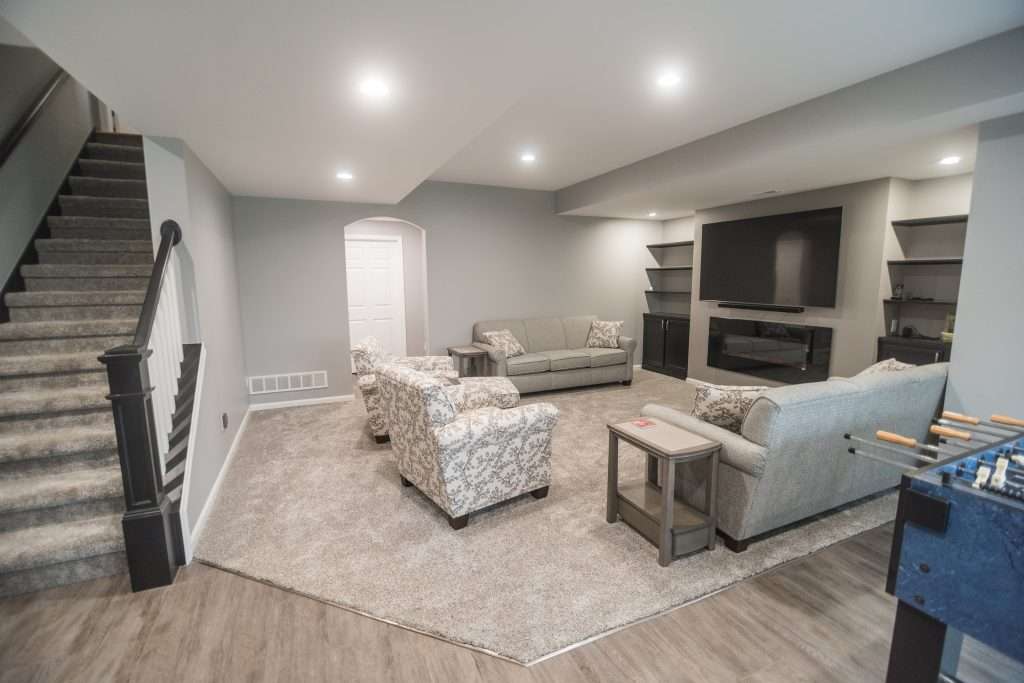Essential Basement Renovation Requirements

Basement renovation requirements typically include adhering to local building codes and regulations, obtaining necessary permits, and ensuring the project is conducted safely and efficiently. Here are common basement renovation requirements:
Basement renovation requirements typically include adhering to local building codes and regulations, obtaining necessary permits, and ensuring the project is conducted safely and efficiently. Here are common basement renovation requirements:
- Building Permits: Most local authorities require permits for basement renovations. You’ll need to submit detailed plans of the renovation project to obtain the necessary permits. This ensures that the work complies with safety standards and zoning regulations.
- Structural Assessment: A structural assessment of the basement is essential to identify any issues like cracks, water damage, or foundation problems. Addressing these concerns is crucial for a safe and durable renovation.
- Moisture Control: Basements are prone to moisture issues. Proper waterproofing measures, such as sealing cracks, installing drainage systems, and using moisture-resistant materials, are vital to prevent water damage and mold growth.
- Insulation: Proper insulation is necessary to regulate temperature and conserve energy. Insulating the basement walls and floors can help create a comfortable living space while reducing energy costs.
- Electrical and Plumbing: Ensure that the electrical and plumbing systems meet safety standards. This may involve rewiring, adding outlets, or updating plumbing fixtures. Hiring licensed professionals for these tasks is crucial to avoid potential hazards.
- Egress Requirements: If you plan to use the basement as a bedroom or living space, local codes might require a proper egress window or door for emergency exits. Compliance with these regulations is essential for safety.
- Ventilation: Adequate ventilation is necessary to prevent stale air and control humidity. Installing ventilation systems like exhaust fans or HVAC ducts ensures good air circulation and maintains a healthy indoor environment.
- Fire Safety: Install smoke detectors and carbon monoxide alarms in compliance with local fire safety regulations. Ensure that there are clear escape routes in case of emergencies.
- Soundproofing: If the basement will be used as a recreation area or home theater, consider soundproofing measures to minimize noise transfer to other parts of the house.
- Accessibility: If you plan to use the basement as a separate living space, consider accessibility features such as wider doorways and ramps to accommodate individuals with disabilities, ensuring inclusivity.
- Proper Lighting: Plan for sufficient lighting fixtures to illuminate the space effectively. Natural light sources like windows and window wells should be considered if feasible.
Always consult with experienced Basement Renovation contractors or construction professionals who are familiar with local regulations to ensure that your basement renovation meets all the necessary requirements and standards.
